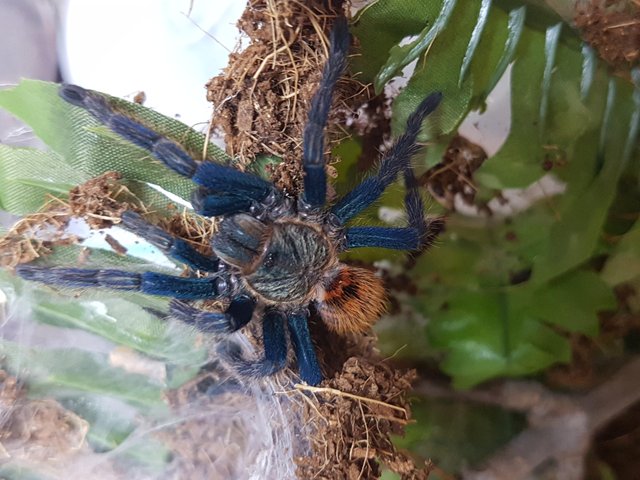
Growing up, I would spend my summers at my grandparents cabin. It was near a gorgeous lake and surrounded by forests and mountains. Everywhere I looked, some form of life would be thriving. My fascination with creepy crawlies started by examinating the wildlife in that beautiful park. I remember going for hikes in a Marsh with my grandfather and trying to catch dragonflies and several insects in the water. People's aversion to me getting so close to insects confused me. I was curious about them and wanted to learn more. When I first saw Home Alone I desperately wanted a tarantula. Needless to say, my mother was less than supportive. She tried to make me ashamed for even considering having such a strange creature as a pet. I figured that she simply did not understand my interest with arachnids.
One of the most common phobias I hear of people having is arachnophobia. "Creepy","dangerous" and "threatening " are all attributes that I hear when a spider is being described by someone with arachnophobia. I believe "misunderstood " would be a better description. Arachnophobia is believed to be a remnant of a survival technique carried by our ancestors. I hope this blog can dissipate certain prejudice against these eight legged creatures.
Spiders just want to be left alone
The fear that spiders can kill you is a common claim that is being spread. The truth is, on average, more people die of bee or wasp stings than a spider bite each year. Most spiders cannot penetrate human skin, and if they can, most can't inject enough venom to warrant a medical intervention. Much like bees and wasps, spiders don't like to be bothered. Some will get aggressive if they need to defend themselves but otherwise, they won't bother.
Living with 13 tarantulas, I learned that arachnophobia is unwarranted. I interact with them daily to water them and feed them and I've never been in a situation when I thought I'd be in danger. Tarantulas will do a defense stance if they feel threatened, as a warning for us to back off. If we don't heed their warning they will run away before attempting to attack. Biting is a last resort for tarantulas, in a situation where it is impossible for them to run away, they will flick hairs at the threat and squeeze their fangs together to show off their venom.
Spiders are more frightened of you than you are of them.
Most people fear what they do not understand, my advice for conquering your fear is to research them, better understand and grasp the subject in question, and then face it head on.
I loved this. I love holding tarantulas but for some ungodly reason am horrified by any smaller spider that isn't a daddy long leg, a crab spider, or a banana spider.
Do you have any arachnid articles you could recommend to me to help conquer that silly fear?
Downvoting a post can decrease pending rewards and make it less visible. Common reasons:
Submit
There's a good article about it in Scientific America that can help :)
Downvoting a post can decrease pending rewards and make it less visible. Common reasons:
Submit